Japanese Garden Training Program
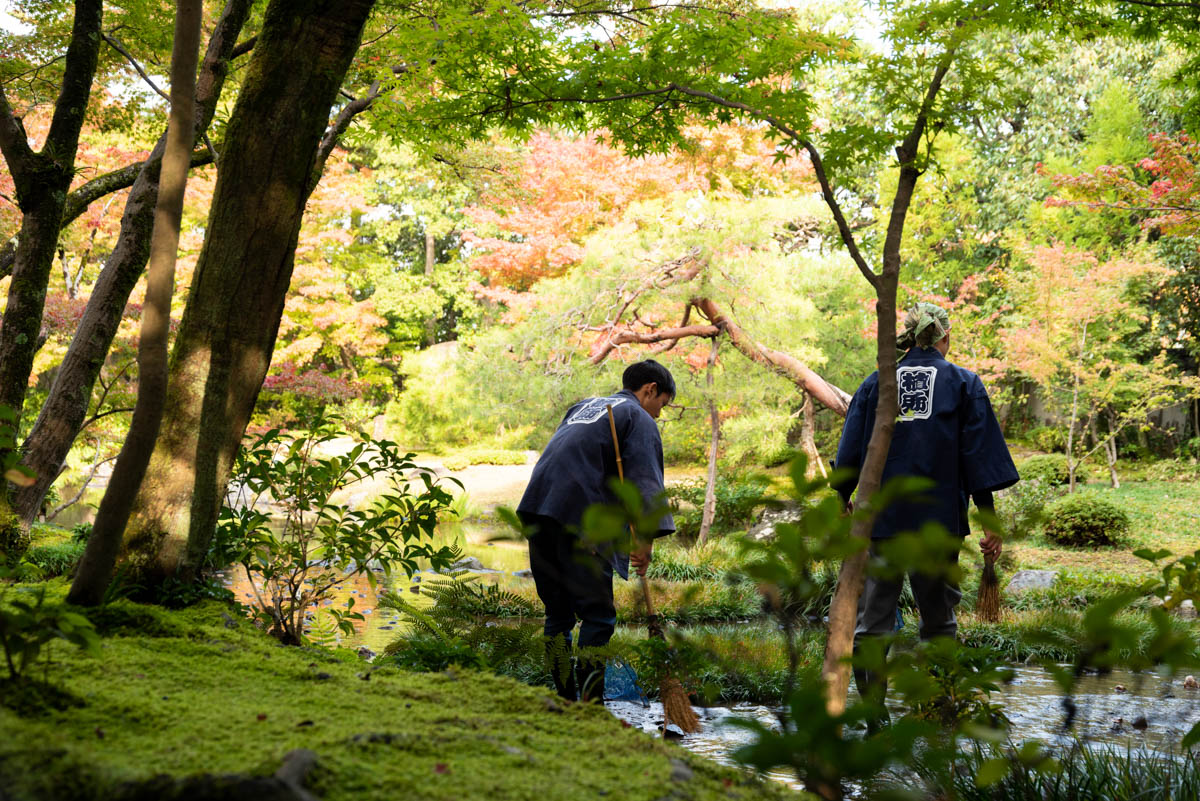
About this Training Program
Ueyakato Landscape has been a part of Kyoto’s landscaping business for many years. Recently, we have received many requests to provide training. Due to the work we do at many gardens, however, we have found it difficult to coordinate programs in response to individual requests. Therefore, we have created a new training program for those interested in in-the-field training at a Kyoto landscaping company. This is a 5-day program taught by Ueyakato Landscape’s veteran gardeners, with training at gardens under our company’s management.
In accordance with our company’s mission to pass on the tradition of Japanese gardens to the future, we will provide scholarships covering half the cost of program participation for applicants deemed capable of contributing to the continuation and further evolution of Japanese gardens.
Program Mission
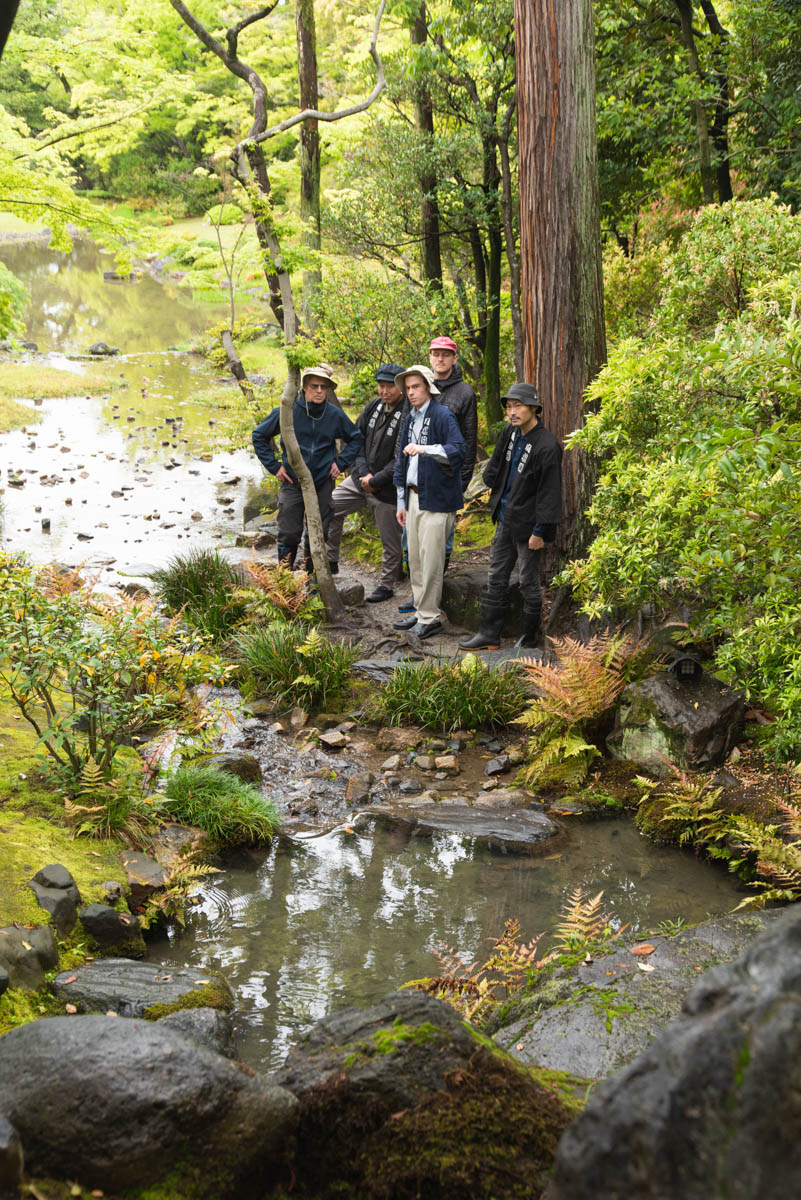
As Japan’s capital, Kyoto was the seat of national culture for 1,200 years. Garden culture was no exception, and today Kyoto still has many gardens that have been designated national cultural properties. Both in terms of garden creation and garden management, Kyoto has evolved an aesthetic sense of its very own that is still alive today.
One of the most important elements of garden beauty lies in how its space is distributed, a critical factor determining how to stage a garden’s space. This program aims to break down Kyoto’s unique garden aesthetic by looking at the relationship between its gardens and environment, while also sharing knowledge that participants can practically develop upon at gardens in their home regions.
How are gardens evaluated in Kyoto? And why? By focusing on these questions while conducting actual garden training, this seminar will give participants an experiential grounding that goes far beyond mere learning.
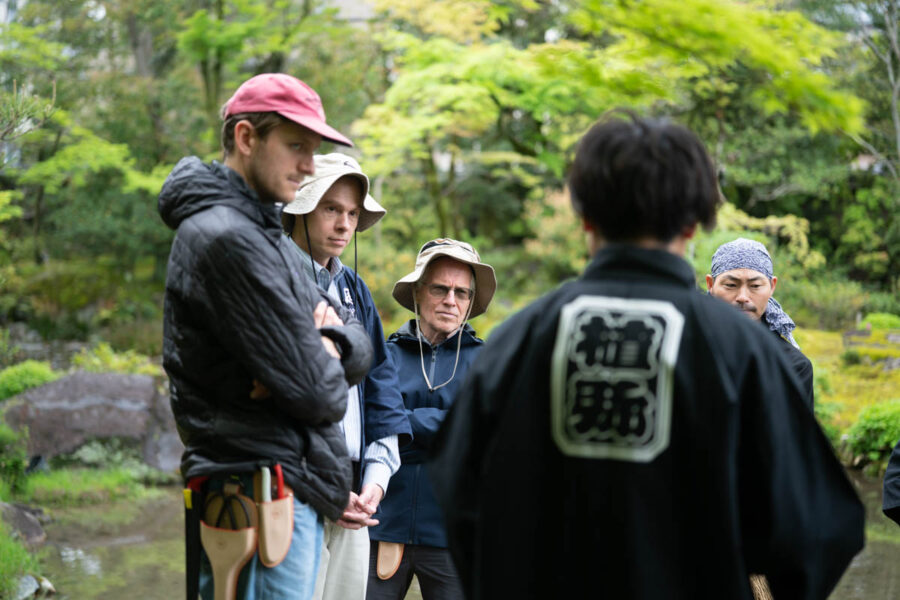
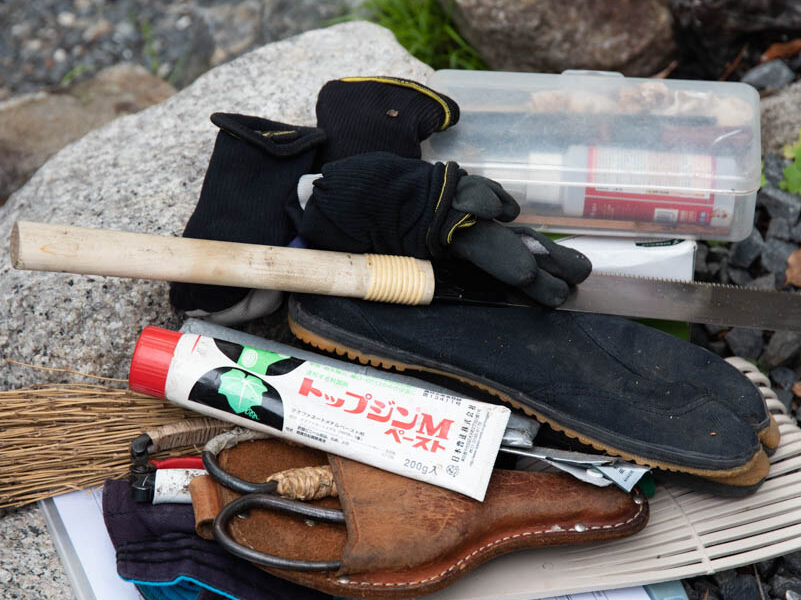
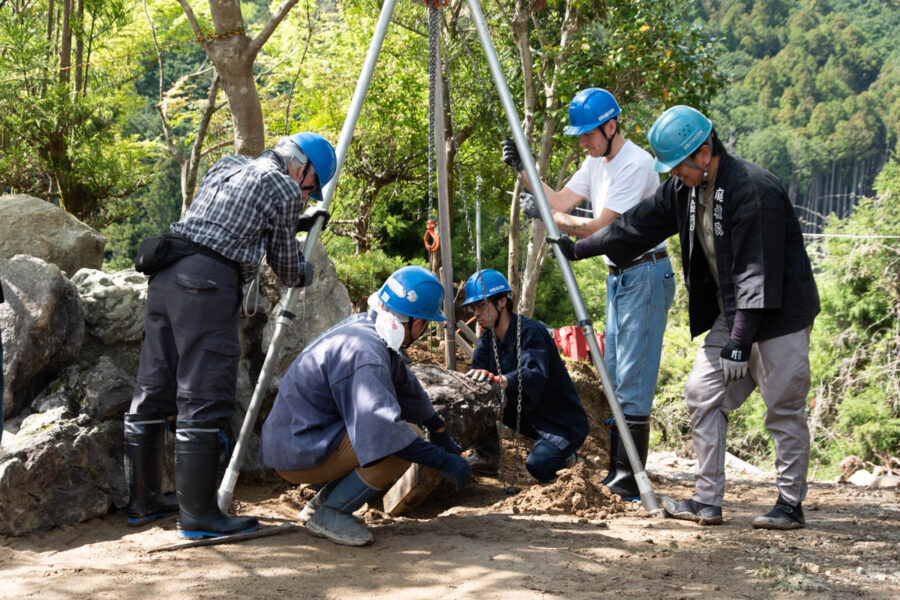
To apply
Items and services supplied by this seminar:
Seminar cost covers the following:
- Training instruction (+English language interpretation)
- Tools and footwear used during training
- Transportation expenses/garden entry fees incurred during training
- Cost of external training
- Lunchtime food and drink for 5 days
- Dinner party on the final day
- Instructional texts
- Injury insurance
Participants shall bear the cost of lodging expenses and travel expenses to Ueyakato Landscape as well as any food expenses not included here.
What to bring with you:
Please prepare the following items to participate in this course.
- Work clothes (Clothing easy to move in and that is okay to get dirty)
- Rain gear (Raincoat)
- Towel
- Hat
About our scholarship program:
Ueyakato Landscape will cover half of the training cost (¥500,000-) for applicants it deems capable of contributing to the future continuation and further evolution of Japanese garden culture. Scholarship applicants will be evaluated according to how their participation in this program will contribute to the future of Japanese gardens. All application materials should concisely convey how previous education and work experience have contributed to the applicant’s interest and understanding of Japanese gardens and outline their future aspirations for furthering Japanese garden culture.
Evaluation criteria
- Prior experience in the practice or study of Japanese gardening (or landscape gardening)
- Concrete plans for contributing to Japanese garden culture
- Concrete plans for communicating Japanese garden culture to the public
Application materials
Those wishing to apply for scholarship funding should submit the following materials in addition to a resume.
Statement of Purpose (1 page)
Please describe as concretely as possible how this course will help you further your professional and/or personal goals to contribute to Japanese garden culture. Application statements should address all three evaluation criteria above, but you may choose to focus on one or more of them as may be appropriate to your background.
Portfolio (if available)
Please submit any portfolio material you have that is relevant to the aims of this course.
Submit all application materials via the application form.
After applying:
After we receive your application, we will process it according to the following timeline.
Application receipt
▽
(2-3 weeks required to confirm and screen applications)
▽
Notification of acceptance followed by payment method notification
▽
Payment by applicant (within 1 month)
▽
Participation registration is finalized when payment is confirmed
*All participation fees will be returned to the applicant in the event the program is canceled.
A decision will be made by mid-February 2025 regarding whether to cancel the event.
The application deadline is January 17, 2025 (Mon.)9:00 JST. Please note, however, that receipt of applications may be ended earlier in the event we receive many applications.
When you receive payment instructions, please make your payment through PayPal within one month.
Attention:
After receiving your application, we will make sure to reply to you within three weeks.
In the unlikely event that you do not receive an email from us, please check the following.
- Are your email settings causing our email to land in your spam folder?
- Were there any mistakes in the email address you included in your application?
With apologies for any inconvenience, please use the inquiry form below if you do not hear from us within three weeks of your application.
inquiry form
What to know about staying in Kyoto:
- Please dress in easily adjustable clothing. Kyoto’s temperature fluctuates widely between morning, daytime, and evening. This program’s training period also takes place during the time of year where there are both warm days and cold days.
- We recommend staying at a hotel or other lodging facility nearby Ueyakato Landscape.
*Ueyakato Landscape is located at a one-hour bus ride from Kyoto Station. - Kyoto has many stores and restaurants where credit cards cannot be used. Please come prepared with cash.
Disclaimer:
- Ueyakato Landscape accepts no responsibility for accidents occurring outside program training.
- Please make your own lodging arrangements and your own transportation arrangements for getting to Ueyakato Landscape from your place of lodging.
- We regret that we are unable to set aside time for prayer during training. We thank you in advance for your understanding.
Instructors
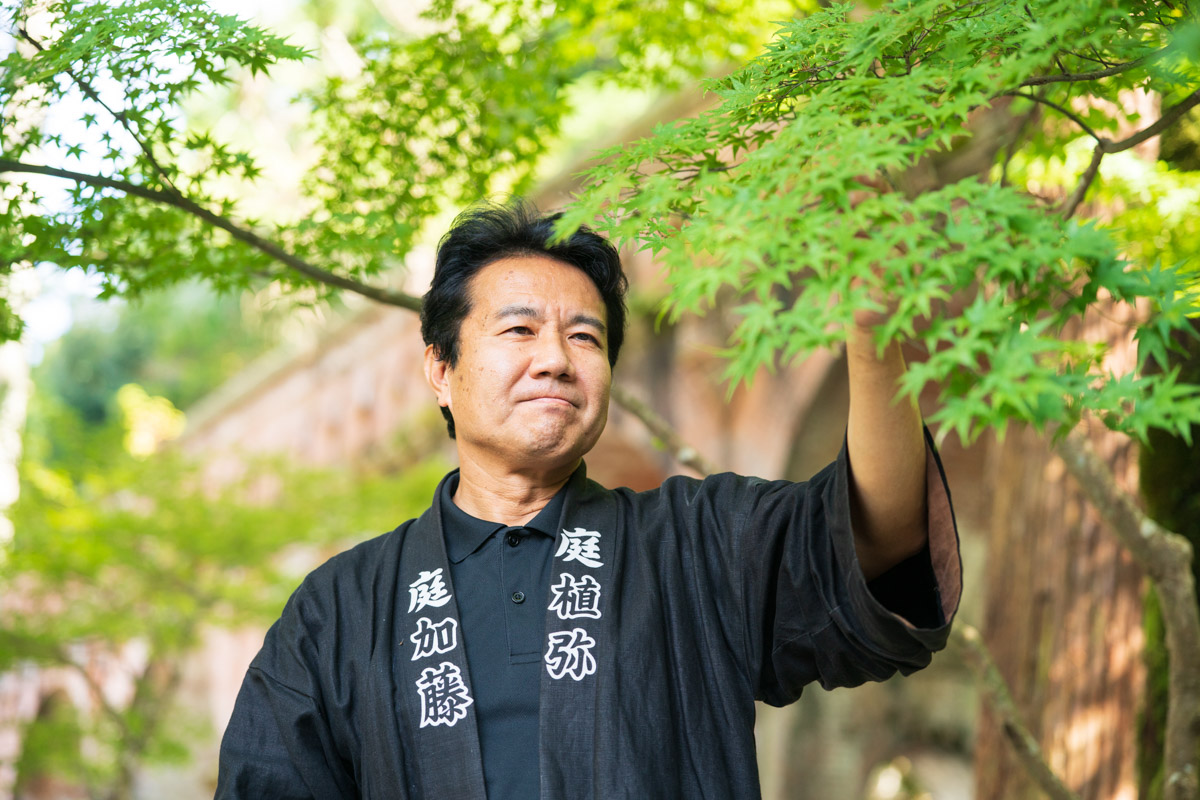
Tomoki KATO:
As Ueyakato Landscape company president and a professor at Kyoto University of the Arts, Tomoki Kato has been consistently committed to pursuing and promoting an active Japanese garden tradition based on solid skills, knowledge, and aesthetic taste. As a scholar, he conducts research grounded in practical learning that contributes to how Japanese gardens are both managed and enjoyed today. He gives frequent lectures both in Japan and abroad, including the 2014 and 2018 keynote speeches at the international conference of the North American Japanese Garden Association (NAJGA).
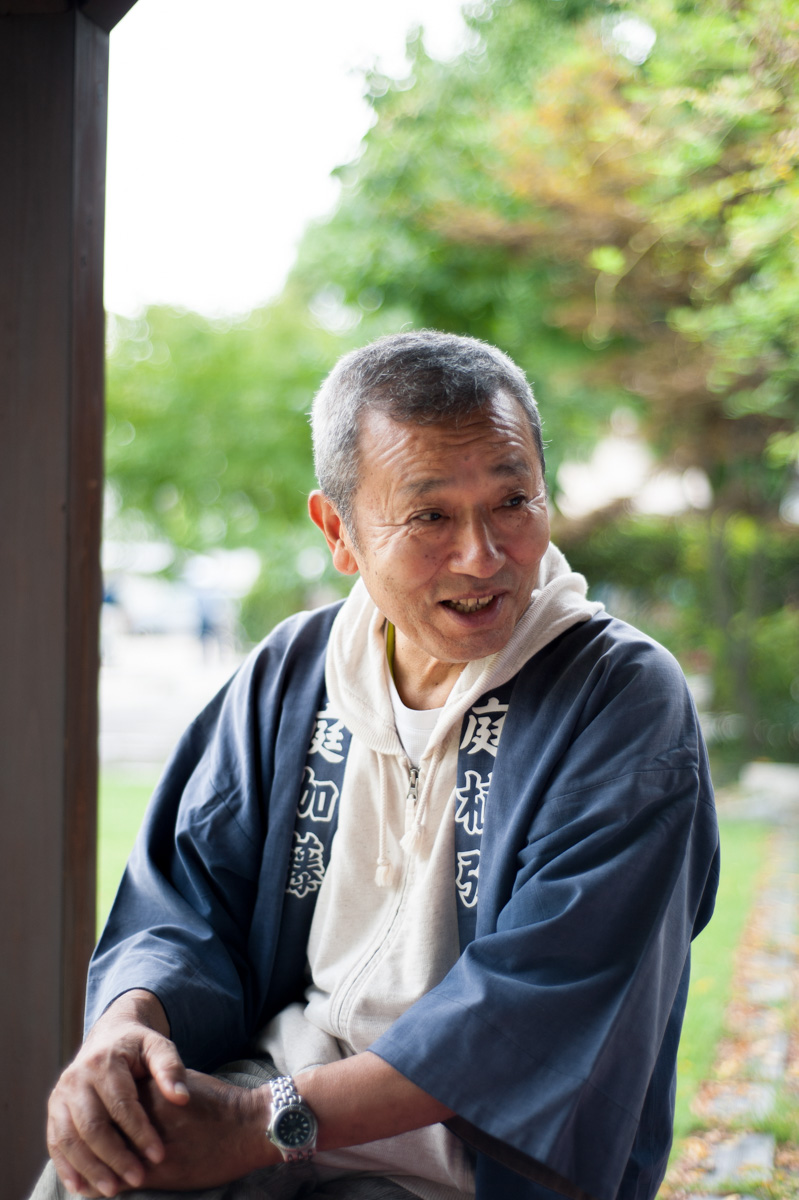
Sueo KATO:
The former president of the Council of Conservation Technicians for Cultural Property Gardens. Working for his family’s landscaping business since the age of 15, he has created and managed gardens for temples, private residences, and commercial facilities. He became a full member of the Council of Conservation Technicians for Cultural Property Gardens, the designated conservation techniques preservation group of Japan’s Agency for Cultural Affairs, when it was founded in 2002. He is involved in directing repair work for gardens that are cultural properties both in Kyoto and throughout Japan.
Graduated from Kyoto University of the Arts, Graduate School, majoring in Art and Environment in the field of Japanese Gardens.
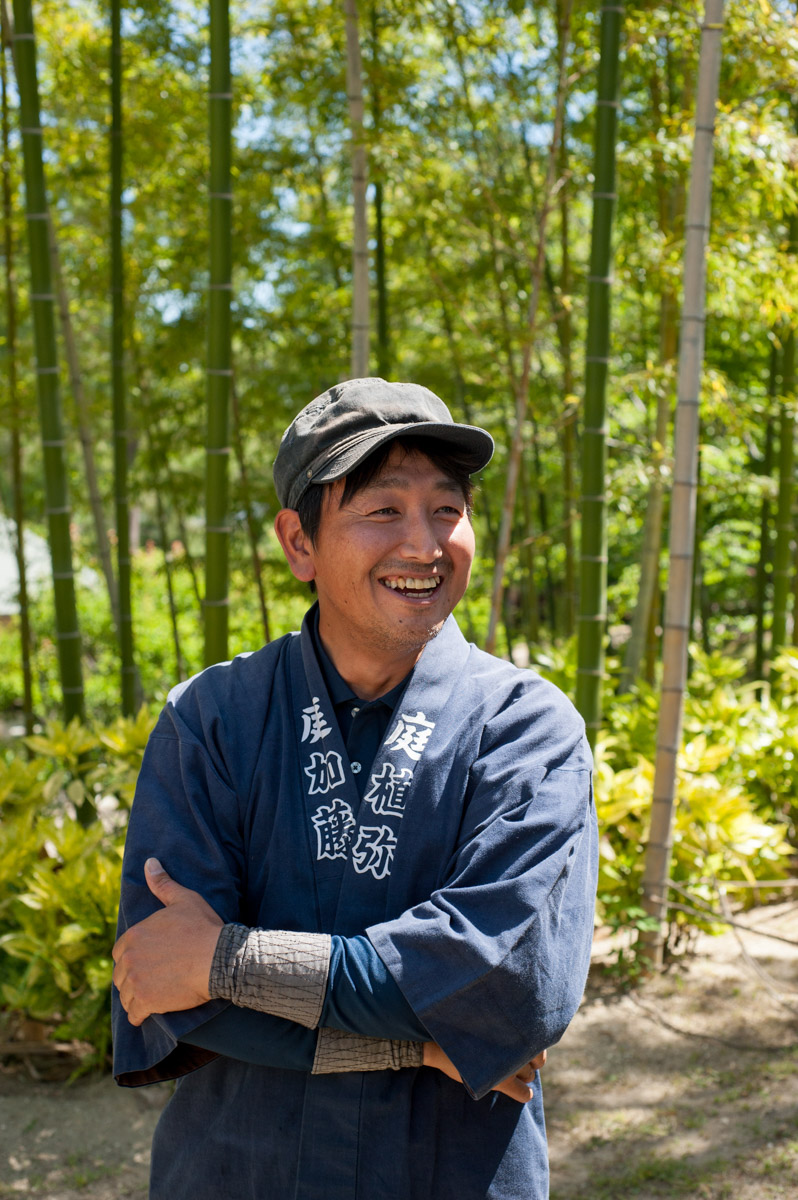
Tomohiko MUTO:
Ueyakato Landscape’s Tomohiko Muto has been head gardener for Keihanna Commemorative Park for ten years, where he applies traditional skills to fuse Japanese garden scenery with broader pastoral landscapes such as mountain forests and a natural pond. He is a veteran Japanese gardener who is equally experienced in the art of teaching. He has taught Japanese garden management and creation extensively to non-Japanese speaking students both in Japan and abroad and excels at explaining not only the techniques of Japanese gardens, but also the philosophy that underlies them.
This program is organized by the Heritage and Garden Artistry Division of Ueyakato Landscape.
Please send all inquiries to the following email address.
